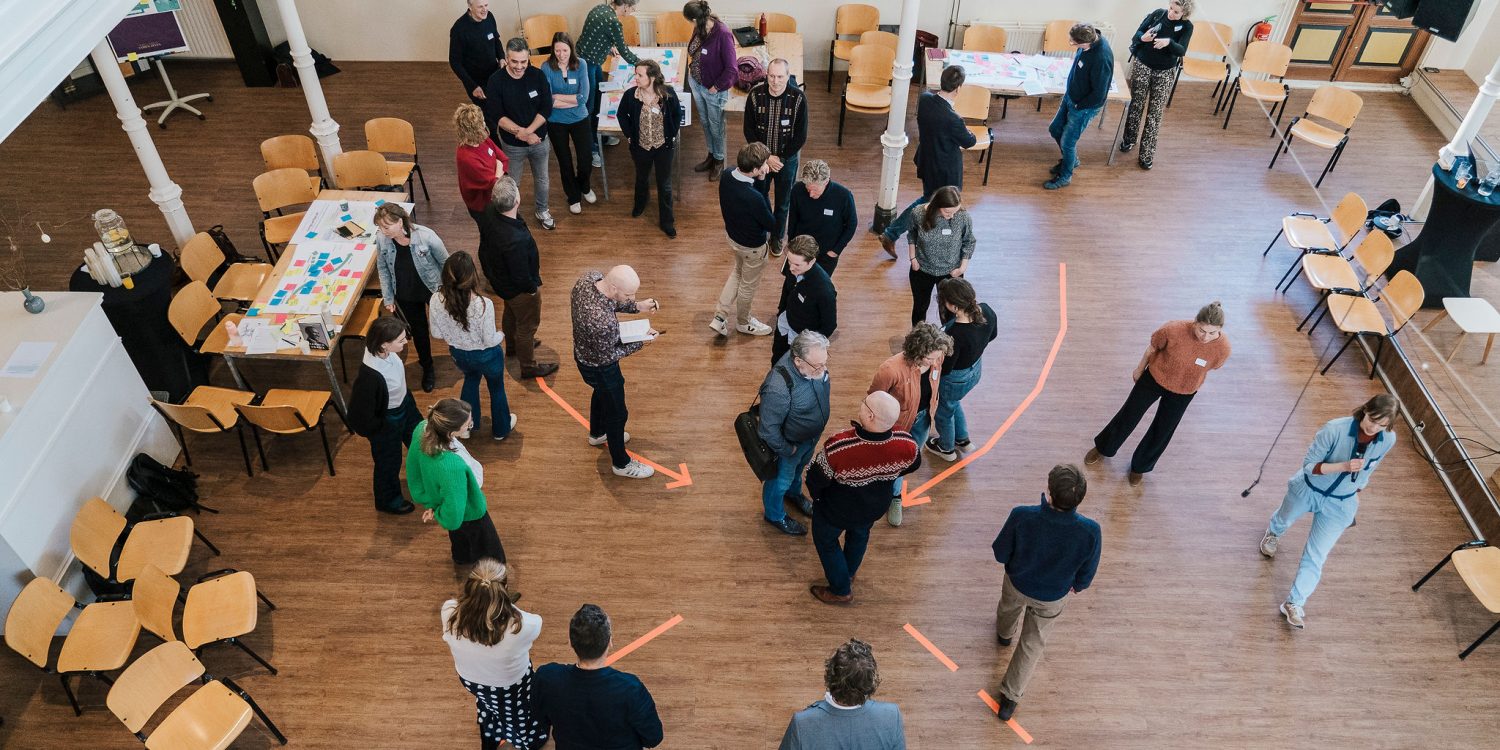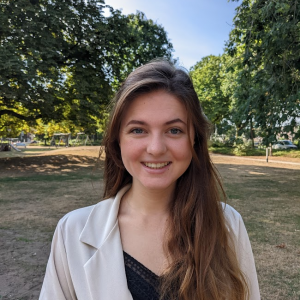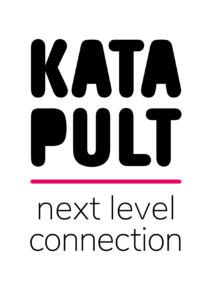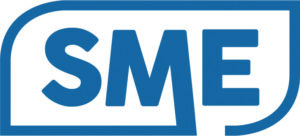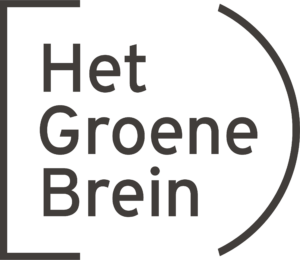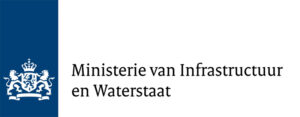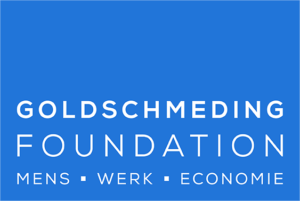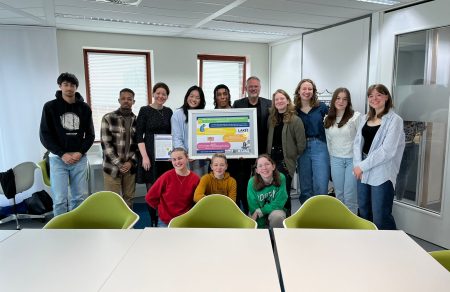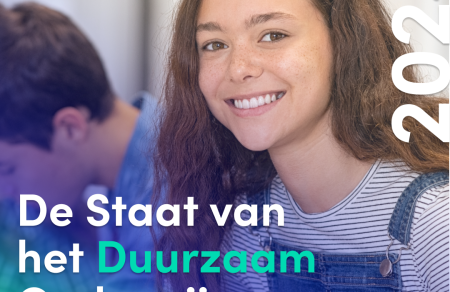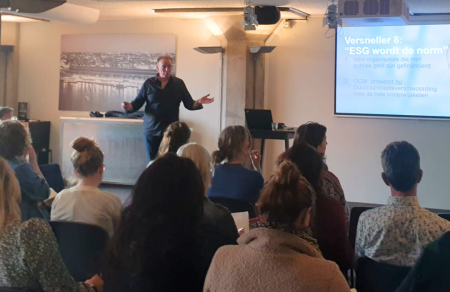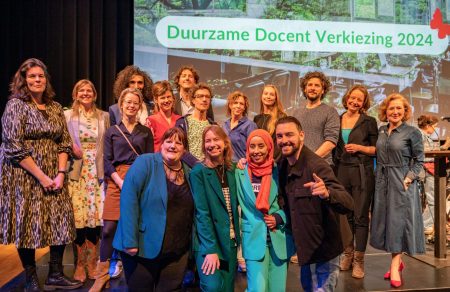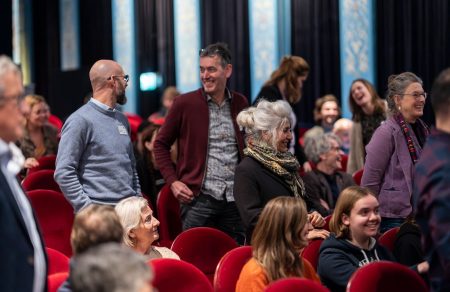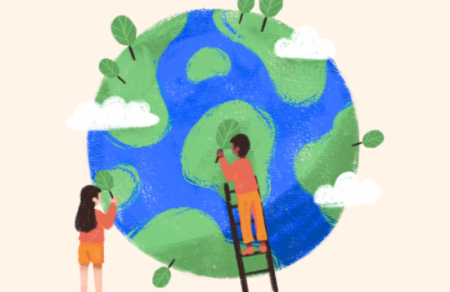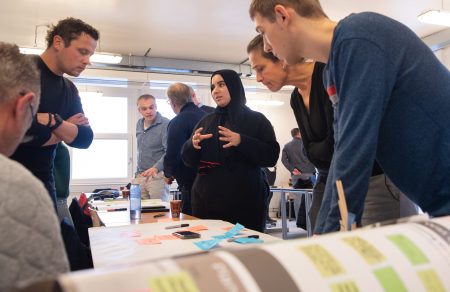Putting on the transition glasses
Prior to the Meet Up, the "Expedition Climate Transition" featured a lunch lecture by Carien van der Have, consultant and researcher specializing in circular economy, chain collaboration and new business models at DRIFT. She taught us to look at initiatives with a transition perspective. Transitions are complex and certainly not manufacturable and plannable. Yet we can seek tactical connections and drive transition from different roles. Carien: "Sometimes we are in a system where we assume things are just the way they are. It's great fun to question things that are taken for granted to see what answers you get. Why do we actually do it this way? Is it still as important as it was when we thought it up?" More tools for looking at systems and initiatives through transition glasses can be found in her presentation.
Connecting with each other
The Meet Up opened with an interactive format of work, led by Anne Stoop of The Turn Club, connecting participants in a creative way. "Artists, through their ability to thrive in chaos, are valuable partners in the transition to a sustainable society," Anne said. In preparation for the session, all participants were asked to bring a source that inspires them personally. This could be a source that has meaning in relation to where someone comes from, that has something to say every time, that someone returns to or that they work with a lot, for example. A wide range of sources were included: books, quotes, music, memories, art, et cetera. In trios we exchanged what this source means to us and asked in-depth questions. This opening set the tone for further exploration and collaboration throughout the day.
Getting started on the challenges of field projects
A "transition experiment" is an innovation project is set up from a societal challenge based on learning aimed at contributing to the realization of a transition. Several initiators pitched the challenges they face in their project. Participants could join them at the table to go into depth together: What change do we actually want to create? What is the scope of the project? What are we running into and what solutions can we come up with? At the table at the Sustainable Energy Trade Center, for example, we discussed how we can take into account the demand on the labor market in our training, while also focusing on discovering and developing the talents of individual students. What are we training for? And how do we want to organize our education to achieve this?
"Plot yourself on the X-curve"
To conclude the Meet Up, the day's proceeds were discussed in light of the X-curve of transition. With a neon orange X-curve taped to the ground, we plotted ourselves in transition. What role do you like to take? Are you more of an experimenter, do you focus on destabilization and winding down, or do you like to institutionalize and stabilize newly built practices? And another fun question: what happens to you when we get into chaos? Do you thrive there, like the artists? Or do you try to create as much grip as possible? In this concluding conversation, it became very clear that there are different roles in transitions and that you don't have to take them all on yourself. By coming together, learning together and complementing each other, we become better able to face the challenges of the future and build a more sustainable and inclusive society.
Were you at this Meet Up? If so, we are also curious to know what topics you would like to be back at the next Meetups. Let us know!
Learn more and connect?
This Meet Up is organized as part of the Sustainability Skills program. Sign up for the six-weekly newsletter To stay up to date on the latest news and upcoming events!
This year we are organizing more Meet Ups, following up this meeting. Would you like to join this network and attend? Join us in the LinkedIn group.
You can watch Carien van der Have's presentation here download.
